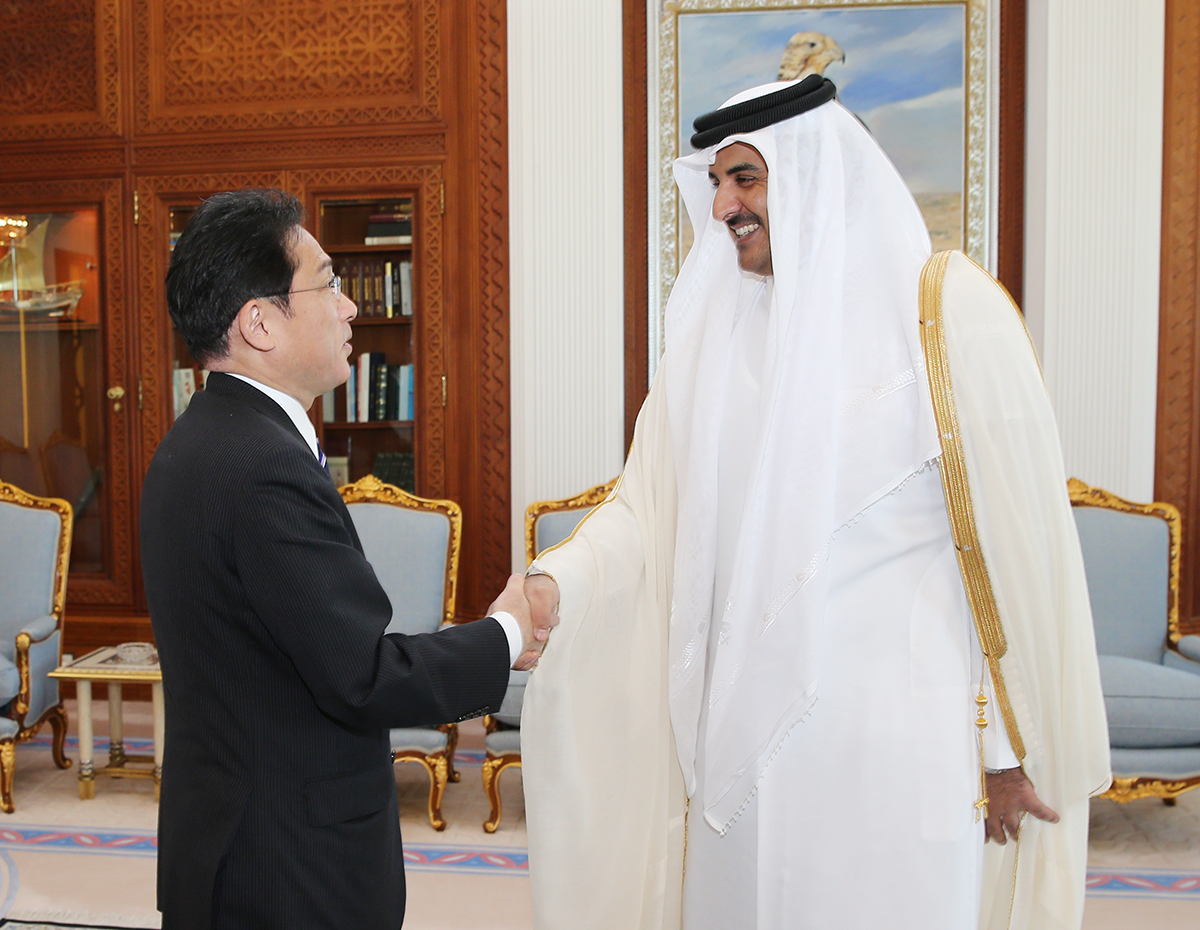The prime minister’s visit marks the first trip to the Middle East by a Japanese leader since January 2020.
The Japanese prime minister is set to visit Qatar, Kuwait, and the United Arab Emirates as part of his Middle East tour later this month, as energy prices undergo a drastic upsurge.
The visit comes as the Tokyo International Conference on African Development is being held in Tunisia on 27 to 28 August, an event which Prime Minister Fumio Kishida is scheduled to attend.
The prime minister is also considering a visit to Saudi Arabia, reports detail.
The discussions will cover topics centred around oil prices and the stabilisation of international markets following a rupture instigated by the Russian invasion of Ukraine.
Kishida is also looking to secure Qatar as a supplier for liquified natural gas (LNG), reports alleged, as the Gulf country boosts its production through its North field expansion project.
Qatar’s gross domestic product (GDP) is estimated to increase to 4.9% this year due to its boosted hydrocarbon exports of 10% as well as its multi-billion plan North Field expansion project.
This is the largest project of its kind and seeks to boost Qatar’s annual liquified natural gas production capacity from 77 million metric tonnes to 126 million tonnes by the year 2027.
The prime minister’s visit marks the first trip to the Middle East by a Japanese leader since January 2020, when the late Prime Minister Shinzo Abe visited the region.
Abe was assassinated on 8 July.
Qatar’s LNG supply amid energy crisis
According to an updated World Bank (WB) Global Economic Prospects report, the unforeseen economic ramifications unravelled by the Russian-Ukrainian conflict, have had a particular ‘positive’ impact on Qatar’s economy.
“The effects of the war in Ukraine on the commodity markets and of its associated economic sanctions are positive, on balance, for Qatar’s economy, the largest exporter of Liquid Natural Gas in the world,” another WB report said.
As EU countries move towards ending their reliance on Russian gas and intensifying their economic response to the invasion of Ukraine, they are keen on securing energy cooperation with the oil-rich Gulf country.
Europe receives 40% of its gas supplies from Moscow and almost a third of the shipments pass through Ukraine.
Japan and LNG
Qatar’s Amir Sheikh Tamim bin Hamad Al Thani and Prime Minister Kishida confirmed early April their cooperation in stabilising energy markets, amid the economic insecurity posed by the Russian invasion.
The soaring prices was also on the agenda, where the prime minister expressed his “hopes” for Doha’s contributions and affirmed that both countries will provide joint efforts in contributing to the stabilisation of the international energy market.
The Gulf nation provides Japan with an average of 7.2 million tonnes of oil per year. Since the halting of the contract in December 2021, the number has dipped below 2 million tonnes.
Qatar maintained major contracts last year with Japanese companies for its North Field project. The $28.7 billion expansion project is viewed as the largest of its kind in the world.
Japan is the largest LNG buyer in the world, importing 74,463,881 tonnes in 2020. Their import dollar value in 2020 reached over $30 billion and approximately 21% net in LNG imports (356 million tonnes) worldwide.
Qatar is one of Japan’s biggest sources of LNG imports, alongside Russia, Australia and Malaysia.
Japan’s LNG dependence on the Middle East is approximately 20%.
Joining the G7, Tokyo froze assets in Russia’s Central Bank and imposed sanctions on Russian officials.
Despite Japan’s decision to impose sanctions on Russia’s Vladimir Putin and other Russian officials and financial institutions, the “energy-deficient country has walked a cautious path” on ceasing its energy imports from Moscow.
Tokyo has also ruled out the possibility of withdrawing from joint energy projects in Russia as it deems it as “essential” to the country’s energy security.
In turn, Russia banned 384 Japanese lawmakers from entering its territory in response to Tokyo aligning itself with international sanctions against Moscow.
The Russian foreign ministry in July blacklisted the Japanese parliamentarians, singling them out on its website and accusing them of “adopting an unfriendly, anti-Russian position notably by expressing unfounded accusations against our country concerning the special military operation in Ukraine”.
Russia accounts for 8.8% of Japan’s total LNG imports.







